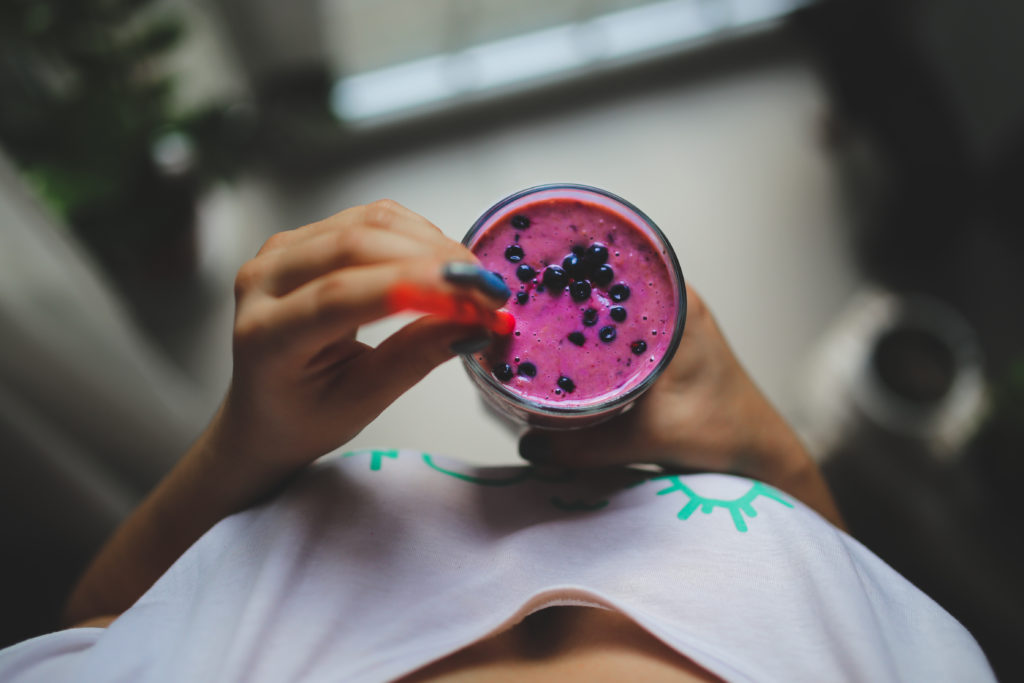Many of us suffer from some sort of digestive complaint. From gas and bloating to cramping and constipation, we can all agree that GI distress can be at best uncomfortable and at worst, painful and embarrassing. Many of these complaints can be linked to a disrupted microbiome (called dysbiosis), a leaky gut lining (called intestinal permeability), and even eating the wrong foods (or not eating the right ones)! Check out some of my top tips on how to restore gut health right now:
- Go Gluten Free – While this is the topic of ongoing research, removing gluten containing grains (wheat, barley, rye, and spelt) may help restore gut health. A 2015 ex-vivo study found that gliadin, a component of gluten, causes intestinal permeability in those who are sensitive to gluten to some degree, whether it be non-celiac gluten sensitivity (NCGS) or celiac disease. Increased intestinal permeability can cause an endotoxin called LPS and other undigested food particles to enter the bloodstream. They are pegged as foreign by the immune system which sparks inflammation and future food sensitivities. Some experts such as Dr. David Perlmutter, a well respected neurologist, are now thinking that it’s possible we are all sensitive to gluten because of its potential role in increased intestinal permeability, neurological disease and autoimmunity. Whether we experience negative symptoms from eating gluten or not, silent inflammation may be affecting our gut health, and consequently our brains through the gut-brain connection, increasing our risk of neurological diseases down the road. If you suspect a sensitivity to gluten, you can talk to your doctor about getting a test, or simply eliminate it from your diet for 4-6 weeks and assess your symptoms upon reintroduction.
- Find Your Trigger Foods – Gluten and other chemical or environmental triggers may act as a precursor to leaky gut, which opens you up for other food sensitivities. Avoiding gluten is a good first step if you struggle with digestive health, but it’s also important to discern if you have other food triggers as well. This is done either through an elimination diet, or through food sensitivity testing like the MRT testing that we offer. Some find that after following a protocol to heal their gut lining that they can tolerate certain foods again, while others may need to avoid a certain food long term.
- Avoid Artificial Sweeteners – A team of Israeli researchers conducted studies on mice and found that non-caloric artificial sweeteners like aspartame and saccharin disrupt the healthy flora in the microbiome. Additionally, they are now studying their effect in non-diabetic individuals. The findings to date link intake of artificial sweeteners to decreased blood sugar control, and increased BMI and blood pressure. While studies in humans are ongoing on this subject, it’s probably much better to choose natural sweeteners like organic raw honey or stevia to sweeten beverages if necessary.
- Eat Fermented Foods – Fermented foods like kimchi, kefir, kombucha, sauerkraut and miso provide live and active cultures which help populate the microbiome with the good bacteria that keeps our immune and digestive systems humming right along. Aim for at least one serving per day, or take a spore based probiotic. I like this one!
- Eat Lots of Fiber – Prebiotic fiber, like that found in Jerusalem artichokes, bananas, garlic, onions, asparagus, and dandelion greens, serve as fuel for the beneficial bacteria in our gut. Prebiotic fiber is fermented into short chain fatty acids (SCFA) like butyrate which serve as fuel for our colonocytes (colon cells) and help reduce the risk of colon cancer and leaky gut.
- Say Goodbye to Stress – Cortisol is our main stress hormone, released by the adrenal glands when our body perceives a stressor. Whether a physical or a psychosocial stressor, our body reacts the same way. Cortisol has been shown to disrupt the balance of bacteria in our large intestine, contribute to leaky gut, and down regulate the turnover of mucosal cells lining the intestine. Finding a good social network, deep breathing and meditation, enjoying time in nature and taking probiotics may all help to mitigate the stress response.
There are many factors that impact the health of our GI tract, and many are still being researched. A healthy diet rich in healthy fats and fiber and low in processed grains and sugars is also very important to restoring a healthy gut lining and keeping our microbiome happy.
Not sure where to start? I am here to help! Schedule a consult today to get started on your road to better gut health.



